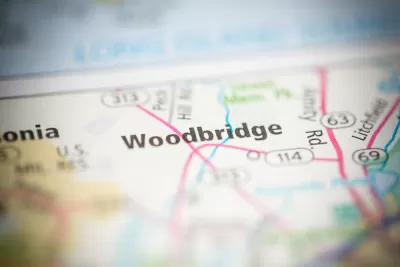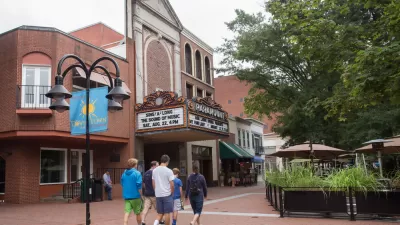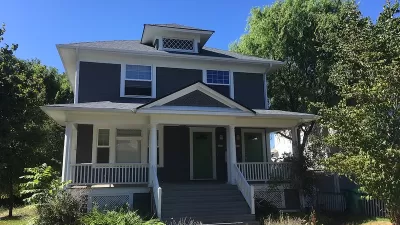A zoning application in the city of Woodbridge, Connecticut has interests on both sides of the issue lawyering up, and the reverberations from the controversy reach all the way to the state capital.

Jacqueline Rabe Thomas reports from Woodbridge, Connecticut, where a controversy about zoning is pushing a debate about property rights and neighborhood character into an intersection with racial justice.
In question is the development of a 1.5-acre property subject to the city's "snob zoning." Civil rights attorneys are asking for the city to throw out its exclusionary zoning to allow the development, and others like it, to proceed, while opponents have hired a legal team that includes conservative former gubernatorial candidate and land use attorney Tim Herbst to fight the zoning changes.
"What’s happening in this liberal suburb that borders segregated New Haven is a reflection of land-use decisions playing out in wealthy suburbs across the state. It’s also a result of the inertia at the state Capitol to resist any new housing laws," according to the article.
Adding to the context relevant to the Woodbridge controversy are recent changes in the State Legislature that are described in the article as a setback for proponents of zoning reform in the state.
Just last week, housing advocates and lawmakers who were hoping to build on the racial justice momentum spurred by the Black Lives Matter movement were dealt a blow when the leaders of the Senate Democratic Caucus dethroned the co-chair of the legislature’s Housing Committee - Saud Anwar, who is arguably the fiercest advocate in the General Assembly for overhauling state laws that some say allow exclusionary zoning to thrive.
The story is also of obvious relevance outside of Connecticut. Woodbridge is presented as a town with numerous Black Lives Matter signs to be found on lawns and a history of Democratic leadership, but information about the discriminatory effects (and intents) of exclusionary zoning have yet to sway public opinion on the fundamental questions of land use regulation.
FULL STORY: Does 'snob zoning' lead to segregated suburbs in CT?

Planetizen Federal Action Tracker
A weekly monitor of how Trump’s orders and actions are impacting planners and planning in America.

Chicago’s Ghost Rails
Just beneath the surface of the modern city lie the remnants of its expansive early 20th-century streetcar system.

San Antonio and Austin are Fusing Into one Massive Megaregion
The region spanning the two central Texas cities is growing fast, posing challenges for local infrastructure and water supplies.

Since Zion's Shuttles Went Electric “The Smog is Gone”
Visitors to Zion National Park can enjoy the canyon via the nation’s first fully electric park shuttle system.

Trump Distributing DOT Safety Funds at 1/10 Rate of Biden
Funds for Safe Streets and other transportation safety and equity programs are being held up by administrative reviews and conflicts with the Trump administration’s priorities.

German Cities Subsidize Taxis for Women Amid Wave of Violence
Free or low-cost taxi rides can help women navigate cities more safely, but critics say the programs don't address the root causes of violence against women.
Urban Design for Planners 1: Software Tools
This six-course series explores essential urban design concepts using open source software and equips planners with the tools they need to participate fully in the urban design process.
Planning for Universal Design
Learn the tools for implementing Universal Design in planning regulations.
planning NEXT
Appalachian Highlands Housing Partners
Mpact (founded as Rail~Volution)
City of Camden Redevelopment Agency
City of Astoria
City of Portland
City of Laramie





























